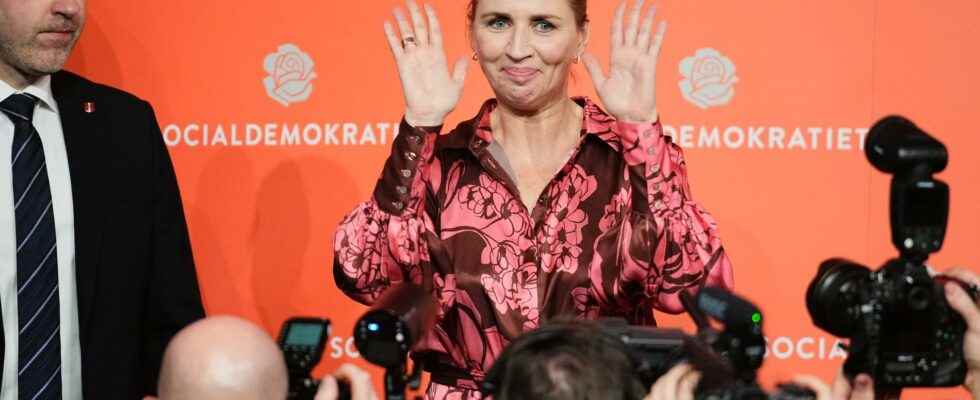Published: Just now
An exciting election results in an uncertain future for Danish politics.
So says Rune Stubager, professor of political science at Aarhus University.
– Now it opens up for quite interesting and long-lasting government negotiations, he tells TT.
When the last votes are counted in Denmark, it looks like the red bloc will get a narrow majority. But Prime Minister Mette Frederiksen, who leads the largest party Social Democracy, will still go to the Queen on Wednesday to request the government be dismissed.
During a nocturnal party leader debate, she invites to negotiations.
– I actually want to suggest that all parties that want to participate and take responsibility start negotiations, she says according to the Ritzau news agency.
Maybe there will be a red government
The prime minister is adamant that she wants to see a cross-bloc government.
– Mette Frederiksen could have obtained a majority for the so-called red parties at the last moment, and that gives her a better negotiating position, but she has said that she will submit her government’s resignation, says Rune Stubager, professor of political science at Aarhus university, to TT during election night.
Whether it will now really be a cross-block government is unclear, however. Several parties on the blue side have expressed skepticism about it.
– When you (the Social Democrats) have told the voters that it was the first priority, you can try it anyway, but we’ll see how it ends if there really is such a thing or a more traditional red government in some way.
The Social Democracy, SF, Enhedslisten, De Radikale and Alternativet belong to the red block, which together scraped together 87 seats. Three more are needed from the so-called North Atlantic mandates. The Reds have already secured one of them from the Faroe Islands, while another is expected to be added from Greenland, which will start counting ballots later in the morning.
– They (the North Atlantic members) might want to negotiate with Lars Løkke Rasmussen about some other form of government. The red side needs all three North Atlantic mandates, but we’ll see how they act, says Stubager.
Two newcomers
Former Prime Minister Lars Løkke Rasmussen left the right-wing party Venstre and formed the new party Moderaterne, which won 16 seats and 9.3 percent of the vote. The Danmarksdemokraterne, which was formed by former Liberal Minister Inger Støjberg this summer, also did well and won 14 seats with 8.1 percent of the vote.
TT: How do you think the entry of the two new parties will shape Danish politics?
– I think, first of all, that the Moderates can gain quite a lot of influence if they want to. After all, they have also pointed out a cross-block government as a big thing before the election, says Stubager.
At the nightly party leader debate, Lars Løkke Rasmussen says that he wants Mette Frederiksen to probe the terrain to form a broad government.
Stubager says that despite the two new parties, the election result itself is relatively similar to how it usually looks in Danish politics with two even blocks.
– Now the moderates have said that they do not belong to any bloc, but most of the voters come from the blue side.
– And that means that there is a limit to how much the Moderates can do with the red parties without losing quite quickly in the polls.
He states that few had expected that the Moderates would become so big and get this position in the middle.
– It was a pretty big surprise to many that they grew so much, but when you look at the polls in the last week or so, it’s not that different from the election results, even though most polls didn’t have the red majority, if it ends up like that .
Low turnout
Turnout ended at 81.4 percent, the lowest figure in more than 30 years. The percentage going to the polls has fallen since the 2011 election.
– We have heard that many had no idea how to vote. We also have quite a few parties that are quite close to each other politically, and these new parties. So it has been quite a big job for the voters to keep track of what policies the various parties actually have, says Rune Stubager and continues:
– The thoughts of this broad government contribute to the fact that the voters found it extra difficult to distinguish the various parties from each other. They have not sent such clear signals or drawn up the clear alternatives that we usually have, and that we recognize from Sweden. Maybe that has made voters stay on the couch.
